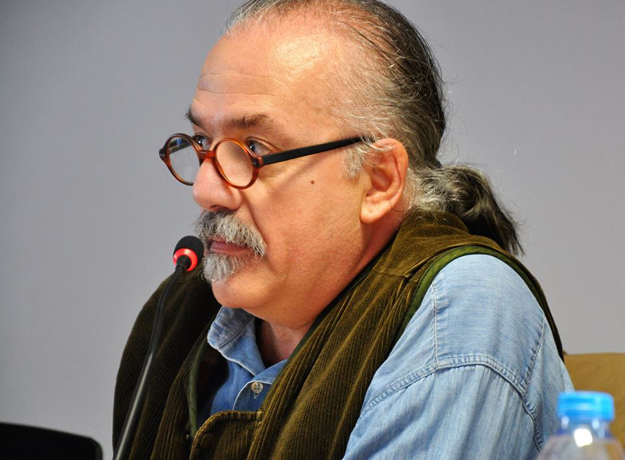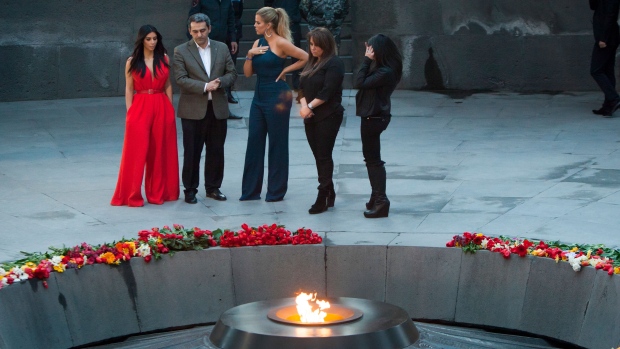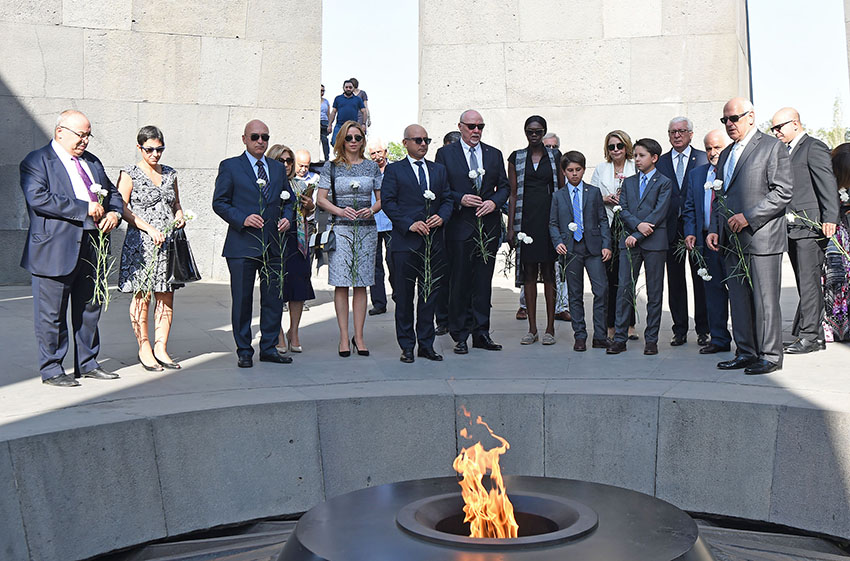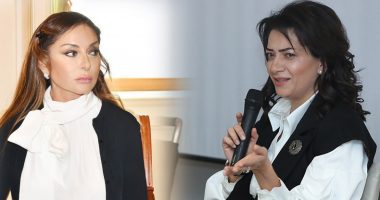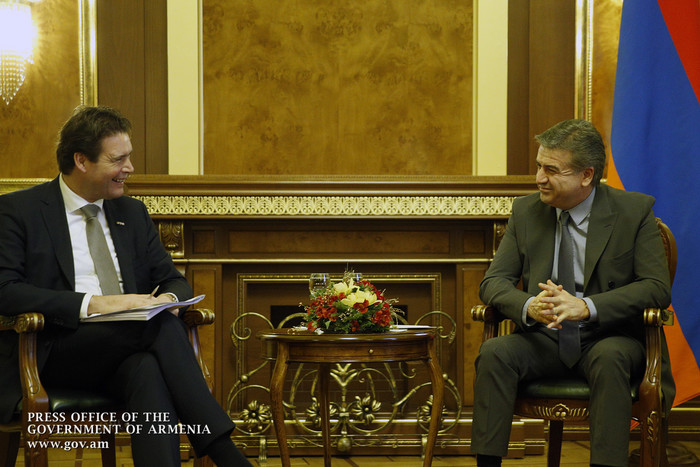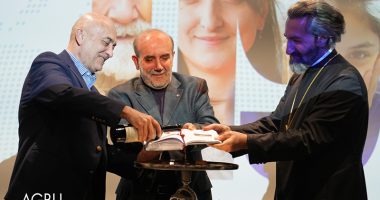By Hambersom Aghbashian
Attila Tuygan (born in 1957 in Istanbul-Turkey), is a well known Turkish writer, editor, translator, researcher and human rights activist. He is a graduate of Istanbul University- Faculty of Literature. Attila Tuygan was born to a military family. His paternal grandfather was a Young Turk pasha serving in Thessalonica during the Balkan Wars, and his father was a Pan-Turanist staff colonel. After the 1980 military coup d’etat in Turkey, although he tried to go underground, he was exposed to various prosecution processes as a political defendant. Attila Tuygan wrote many articles about the genocides and their consequences, most notably, those titled ‘the Armenian Deportation and Trabizond in German Documents’ (Sanat ve Hayat, 2007), ‘Ambassador Morgenthau’ (Agos, 2006), ‘Turkification of the Anatolian Cities’ Names’ (Özgür Gündem, 2014), etc. He is also performing editorship in some independent and dissident publishing houses. Attila Tuygan has translated a long list of books into Turkish, many of them related to the Armenian Genocide.
Attila Tuygan, is the translator of professor Dora Zakayan’s book “An Armenian Physician’s Ordeal. The Chronicle of Garabet Hatcherian.” The translated book was published by Ragip Zarakolu, who is an important figure in Turkey: On May 3, 2007, Zarakolu was tried under Article 301 for the publication of the book. This case had its first hearing in August 2005, when the prosecutor demanded a six-year prison sentence for Zarakolu for “insulting the Army” and also “insulting Turkishness” by publishing this book. Attila Tuygan, the translator, testified as a defense witness and stated that as the translator of the book, he held himself responsible. As a result, Zarakolu was acquitted, but a new trial against the book under Article 301, with Tuygan held responsible, was expected.(1)
In December 2008, 200 prominent Turkish intellectuals released an apology for the “Great Catastrophe of 1915”. This was a clear reference to the Armenian Genocide. The brief text of the apology states “My conscience does not accept the insensitivity showed to and the denial of the Great Catastrophe that the Ottoman Armenians were subjected to in 1915. I reject this injustice and for my share, I empathize with the feelings and pain of my Armenian brothers and sisters. I apologize to them.” Attila Tuygan is one of the Turkish intellectuals who signed it.(2)
In an article published on November 10, 2014, Attila Tuygan wrote about turkification of the places names by changing them from their original Armenian, Greek and Syriac-Aramaic names to Turkish names. It is mentioned in the article that Ottoman authorities deliberately distorted the Armenian and Greek place names and tried to connect them to Turkish or Kurdish origin; even places of worship were given new names. The place names’ “nationalization” process by the Unionists was continued by Kemalist ideological successors. Distorting of the historical and cultural heritage dating back to centuries, and the rejection, denial of the Armenian Genocide is to forget the consequences of genocide and nothing else, according to the writer.(3)
The first commemoration of the Armenian Genocide in Aintab, held on March 21, 2015. The commemoration was organized by the Greens and the Left Party of the Future. Party spokesperson Sevil Turan, Khatchig Mouradian, editor Attila Tuygan and translator Murat Uçanar also spoke. The opening remarks were delivered by Celal Deniz.(4)
According to Voice online, December 29, 2016, Attila Tuygan, wished in one of his writings that he could apologize to the Armenians. The following are some abstract from the same source: “The Armenian Genocide is a byproduct of conflict between (Armenians and Turks) as a result of Ottoman Turkish subjugation. The European Great Powers, emerged in Anatolia in search for Armenian reforms and the Unionists were to seek ways to neutralize these developments. The “Armenian Question” was used as an excuse to get rid of the Armenians. Balkan War ended by soil loss, and the Turkish nationalist movement with the support of Union-Progress was alive, thus, methods such as confiscation of the goods of the Christian communities have become a national economic policy.”(5)
The long list of translated books by Attila Tuygan include: Ermeni Soykırımında Kurumsal Roller [Institutional Roles in the Armenian Genocide, Vahakn N. Dadrian, (Belge, 2004)], Türk Kaynaklarında Ermeni Soykırımı [Armenian Genocide in Turkish Resources, V. N. Dadrian, (Belge, 2005)], Ermeni Soykırımı: Ermenikırım [The Armenian Genocide: Armenocide, Nikolay Hovhannisyan (Pencere, 2005)], Büyükelçi Morgenthau’nun Öyküsü [Ambassador Morgenthau’s Story, Henry Morgenthau (Belge, 2005)], Bir Ermeni Doktorun Yaşadıkları [An Armenian Physician’s Ordeal. The Chronicle of Garabet Hatcherian (Belge, 2005)], Osmanlı İmparatorluğu’nda Ermenilere Yönelik Muamele 1915-1916 [The Treatment of Armenians in the Ottoman Empire, 1915-16 (Blue Book), Vol. 2, Arnold Toynbee (Pencere, 2006)], Osmanlı Bankası: Armen Garo’nun Anıları [Bank Ottoman: Memoirs of Armen Garo (Belge, 2008)], Tarsus’un Kırmızı Kilimleri [The Red Rugs of Tarsus, Helen Davenport Gibbons (Pencere, 2009)], Gizli Din Taşıyanlar [The Crypto-Christians, Georgios Andreadis (Belge, 1997)], Kürtlerin Kültürel ve Dilsel Hakları [Cultural and Linguistic Rights of Kurds, Kerim Yıldız (Belge, 2004)], Marx’ın Devrimci İlkeleri [The Revolutionary Ideas of Karl Marx, Alex Callinicos (Anti-Kapitalist, 2009)], Tanrısız Ahlak [Morality Without God, Walter S. Armstrong (Ayrıntı, 2011)], 1922 İzmir’i: Bir Kentin Yıkılması [Smyrna 1922: The Destruction of a City, Marjorie Housepian Dobkin (Belge, 2012)], Avrupa’da Müslüman Öznenin Üretimi [Producing Islamic Knowledge, ed. Martin van Bruinessen (İletişim, 2012)], Resmi Belgelerle, Avrupa Savaşından Önce Türkiye’li Rumlar Üzerindeki Zulüm (Kara Kitap) [Persecutions of the Greeks in Turkey Before the European War (Black Book), Alexander Papadopoulus (Pencere, 2013)], Komünistlerden İslamcılara Bir 20. Yüzyıl Tarihi: Endonezya [A History of Modern Indonesia, Adrian Vickers, (Ayrıntı, 2013)], Kürt ve Ermeni Soykırımları: Sansür ve İnkardan İkrara? [The Kurdish and Armenian Genocides: From Censorship and Denial to Recognition?, Desmond Fernandes (Peri, 2013)], Karadenizli Rumlara Yönelik Soykırım [The Genocide of the Black Sea Greeks, Konstantinos Fotiadis (Belge, being prepared] and the list goes on.
______________________________
1- https://ricochet.com/archives/the-voltaire-project-i-affirm-the-armenian-genocide/
2- http://www.armeniapedia.org/wiki/200_prominent_Turks_apologize_for_great_catastrophe_of_1915
3- http://ermenistan.de/attila-tuygan-yazi-turkiyede-yer-adlarinin-turklestirilmesi/
4- http://armenianweekly.com/2015/03/21/mouradian-aintab/
5- http://team-aow.discuforum.info/t2433-Ben-de-ozur-diliyorum-Attila-Tuygan.htm

